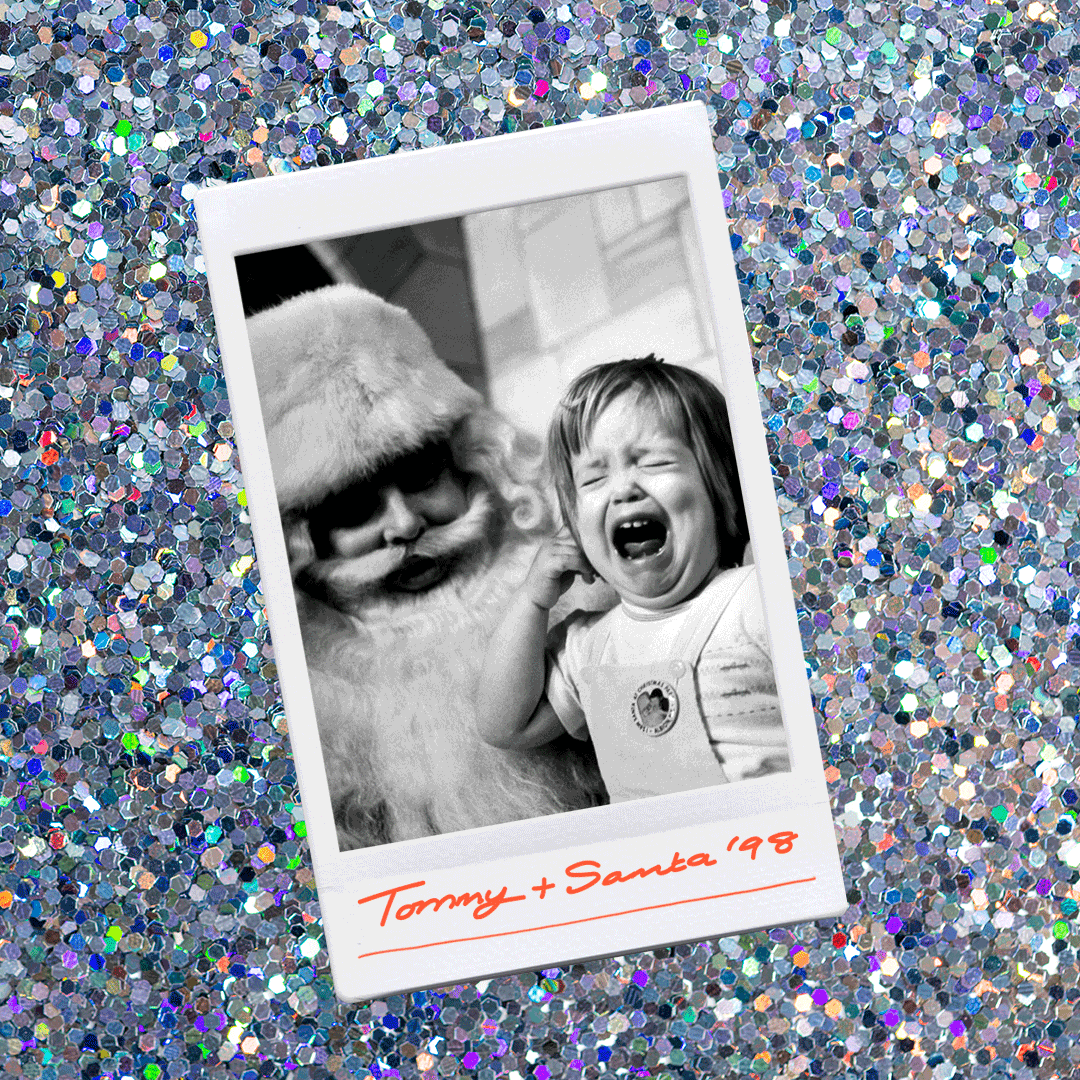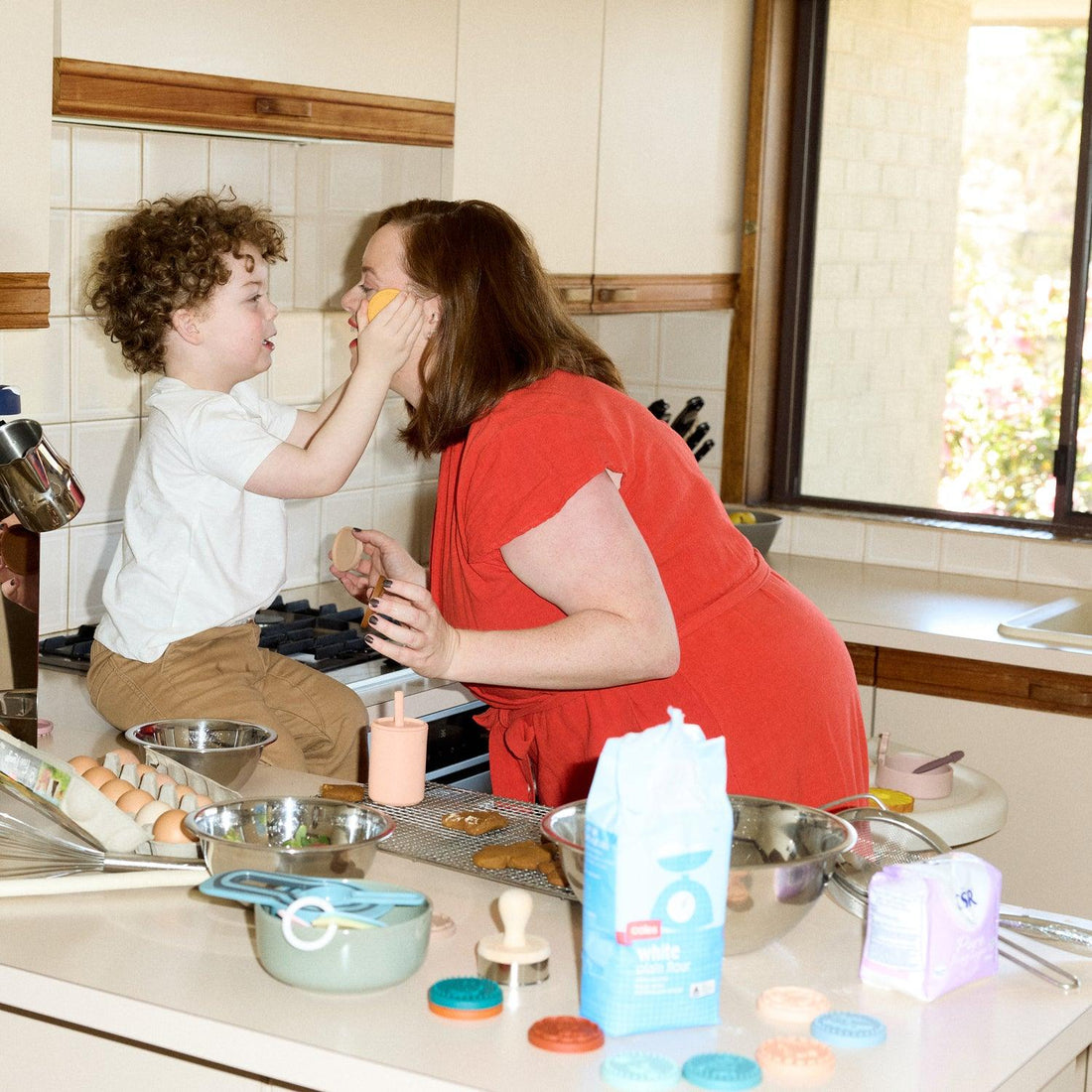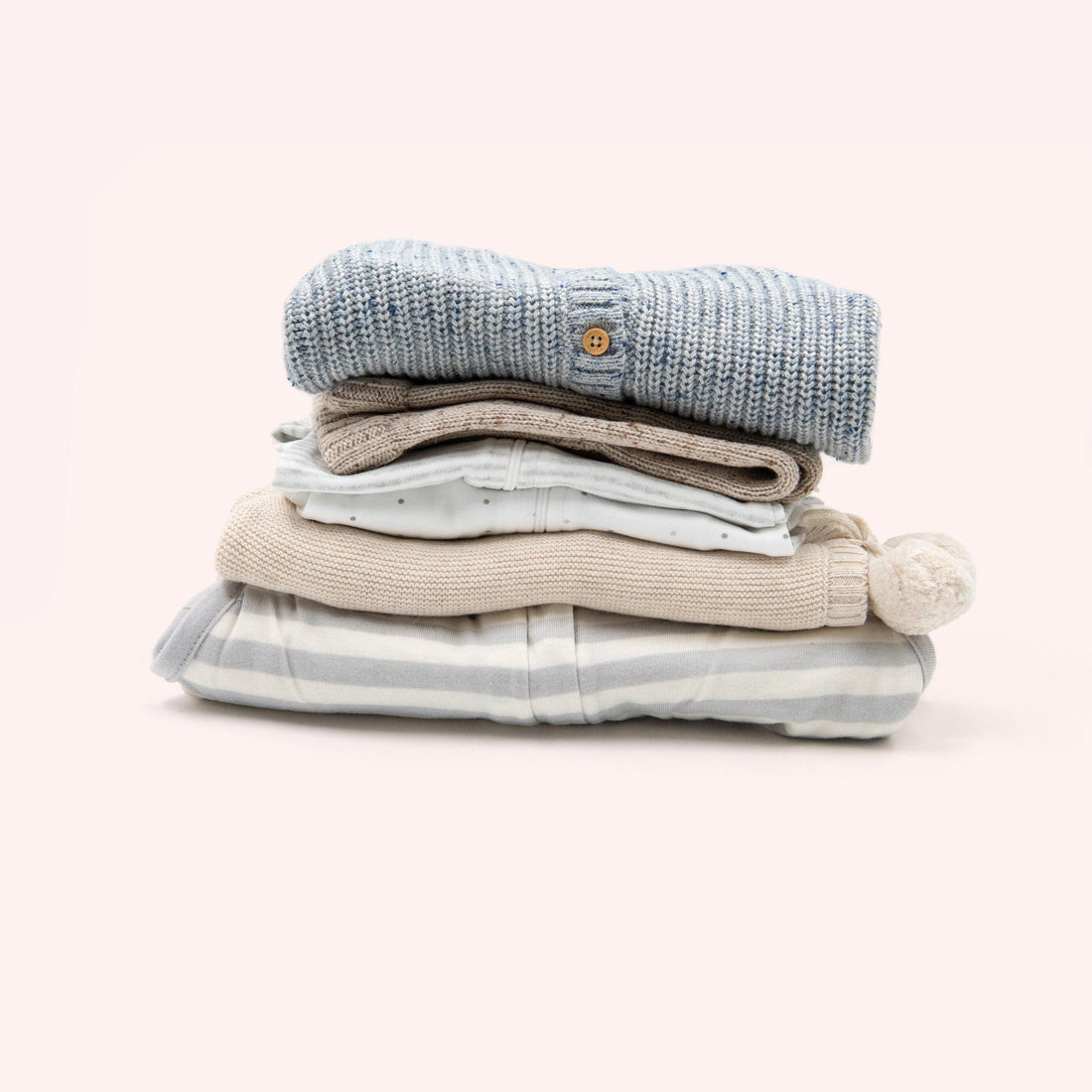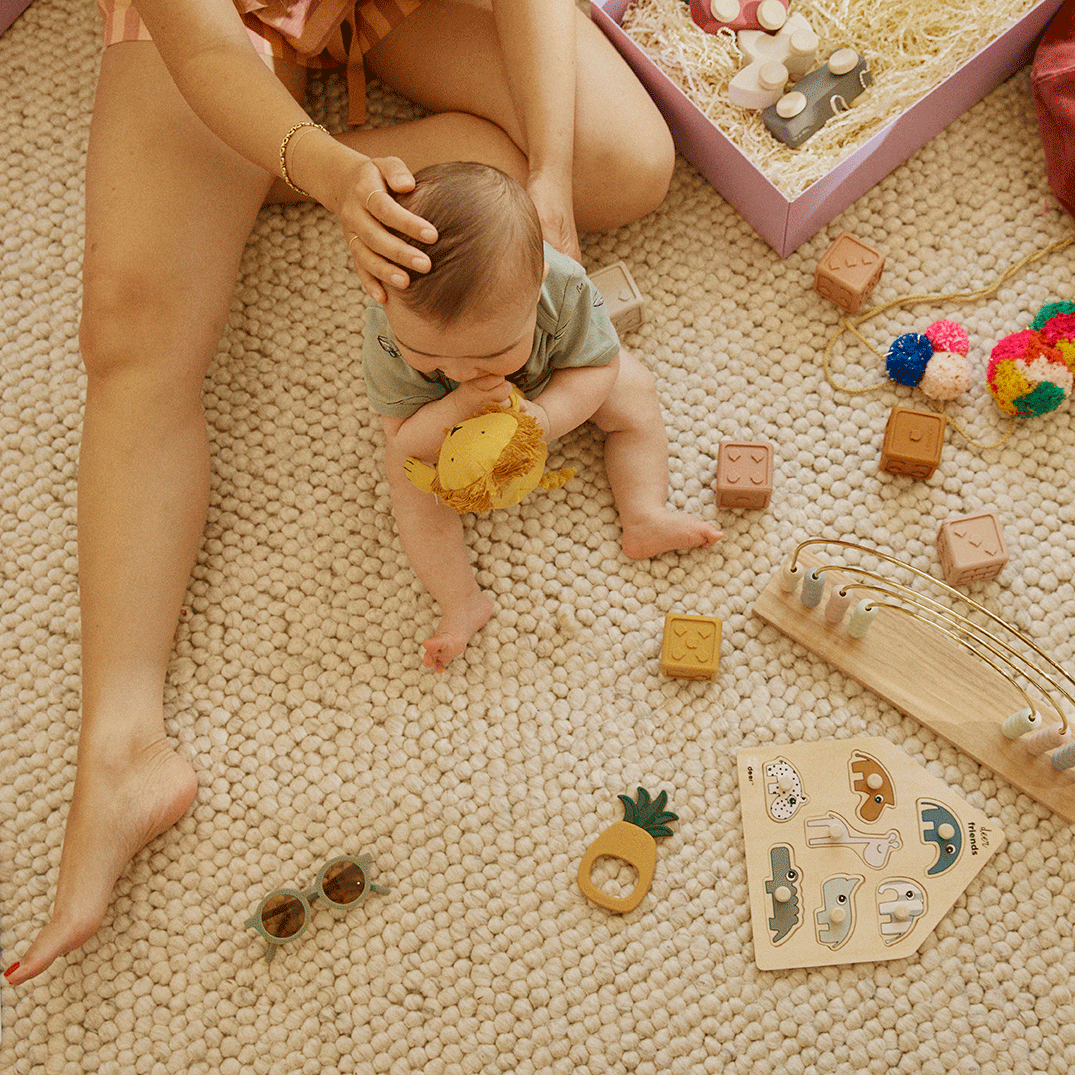Like everything else for millennials, parenting has changed a lot since we were kids. So is believing in Santa dated?
It’s 2023, and most parents with small kids are millennials. The world has changed more in the life span of millennials than any other generation. Most of us remember life without the Internet, and the day the the sound of a dial-up connection became commonplace in our homes. Our childhoods were filled with waiting for our shows to come on the TV, losing touch with friends made on holiday and asking to use the telephone. All this has changed, and so has the way we parent. Punishment and discipline were key principles in how most of us were raised, while now we’re more focused on a gentler parenting style, with honest communication at the centre. There’s no bad feelings, and we encourage self-expression and autonomy in our kids.
So then where do we stand on Santa? He was the figurehead of that time of the year when you got to see all your cousins, get presents, were freed from school, and, in Australia at least, start what felt like endless summer holidays. Santa was true magic, the cause for extreme excitement, and your best behaviour, but does he fit with modern parenting?
In line with this more honest form of parenting which has evolved over our generation, many parenting experts now advise not to “lie” to our kids about Santa. They say can undermine our child’s trust in us, and, as Dr Justin Coulson puts it, “Lying is lying” and “We don’t expect dishonesty from our children. Why should we allow a double-standard?” This year he's also gone some way to address some of the reasons parents wouldn't want to give up Santa.
My own experience of Santa was very magical. I was the eldest child in our extended family, and so I believed the longest and can still remember the supreme excitement I would get on Christmas morning. A level of joy that has never been surpassed, even in a very blessed adulthood. I found out the “truth about Christmas”, from a new friend at my new school when I was eight. She didn’t want to tell me, but I pretended I already knew what it was, and then pretended I wasn’t entirely shocked that Santa wasn’t real. I don’t think I completely believed her, and I continued to put out the cookies and carrots for Santa and the reindeer, and played along with my dad’s annual act: he just saw Santa fly past, we better get to bed. Then it was just a game, and still so much fun, but the magic was dulled.
I’m lucky to have a vast group of friends who I really respect as parents. Where they stand on Santa varies. Trixie, 35, has a four-year-old, Iggy, who will tell you, “we don’t keep secrets in this family, we tell surprises”. A very smart family motto, because nothing good ever came from asking kids to keep secrets. Iggy is one of the most confident, verbal, kind and connected kids around, and whenever he’s asked, his parents have told him, Santa is a story, not a real person. “I didn’t have a good experience finding out Santa isn’t real, and I didn’t want my kids to feel let down or lied to by their parents like I did. We don’t lie to them about anything else, so it felt unnatural to start with Santa.” That doesn’t mean Trixie keeps her kids from participating in the novelties and fantasy of Christmas, but everyone knows it’s just that, a fantasy. He gets presents on Chritsmas morning, and if he asks where they came from (if he does, this will be the first time), she's ask him where he thinks they came from. “He knows all about Santa, the elves and the reindeer, but we explain it to him like you’d explain a character in a show. Santa is like Bluey, or Elmo.”
Ofcourse, no parenting plan is perfect, Iggy, like all kids, has more influences than his parents. He recently came home and told Trixie that there is a real Santa (he’s not the one at the shops), and he is going to bring Iggy a pool with a slide for Christmas. “It’s a spanner in the works, so now I’ve just moved to not correcting him, because, wow, that would be mean. On Christmas Day when he doesn’t get a pool with a slide, maybe he’ll want to talk about it, and I’ll tell him it’s a magical story about giving to others and it’s partly why Christmas is so fun.”
I have another friend, Dolly, 37, who is the queen of celebrations and doing the most. She could give you 51 original positions to put your Elf on the Shelf (she has three in your house, one for each child), and whip you up a magical Santa Land with just a packet of felt and a hot glue gun if you asked her. Her kids believe in magic, because honestly, she creates it. Like that viral tweet, her kids will one day realise that all the magic that was Santa, was actually their mum, and feel very grateful. For Dolly, whether or not to do the Santa thing wasn’t a question, it was always a part of parenting she looked forward to. This year, she thinks her eldest, Sam, 8, might have an inkling, but she’s conscious that, with school age children, there’s a whole community to think of. “I really would hate for my kid to be the one who lets the secret out to all the other kids,” she says, and with that in mind, she keeps the festivities big and the specifics vague. “I don’t drill down the details so as to avoid confusion when they are talking to other kids, but on occasion when my eldest has mentioned some friends who don’t believe, I explain every family has different beliefs about lots of things, including how they celebrate Christmas.” Ideally, she’d like for her kids to find the way her niece recently did, “She’s 10 now, so her parents told her the story of Saint Nicholas and how now, she becomes part of the magic and helps become a Santa for her younger siblings, which she was really excited about. I want my kids to always feel a sense of wonder and have big, creative imaginations. When the time comes, they’ll be part of creating that for others.”
My own son is two-and-a-half years old, so this is the first year that he’s really finding out about Christmas, and it’s been really interesting to watch how excited he gets about it. We don’t have an elf, but a little door has appeared in the hallway and we’re all talking about what could be behind it, and he’s decorated it with stickers (and tried to rip it open). I like to encourage imagination and creativity, so for us, this makes sense. We’ve made ornaments for the tree, wrapped gifts for people and watched lots of movies about Santa. Family members have asked what Santa is bringing him, and he replies “I don’t know, maybe chocolate?” It’s a bit like a try-before-you-buy year. He’s old enough to participate, but not to really understand. Generally, bargaining doesn’t work with him, but on one of his notoriously late bedtimes I did say, “If you don’t go to sleep, Santa won’t come.” Rather than closing his eyes just got sad and started a debate on why Santa should come. It didn’t feel good for me either - though I would feel differently if it had worked.
Longterm, like Trixie and Dolly have found, despite coming from different perspectives, I think I’ll follow my kid’s lead. We’ll welcome his ideas about Santa, like with everything else, whether we say it’s real or not, time will tell. Maybe it depends on what kind of kid he grows into. I know I don’t want to perpetuate the idea that good things happen to good people and bad things to bad people, because in life that really isn’t true, and if something truly bad happens, I don’t want him to think it’s because he didn’t brush his teeth. Though I’ll make sure he knows good behaviour is very appreciated. One thing I will do in future years is divide the gifts from Santa, and from me, in my favour. Something I’ve taken from my nephew’s argument that he could have more presents than just an iPad, “I’ll ask Santa for the iPad and then mum doesn’t have to pay for it and can buy me other stuff.”


















